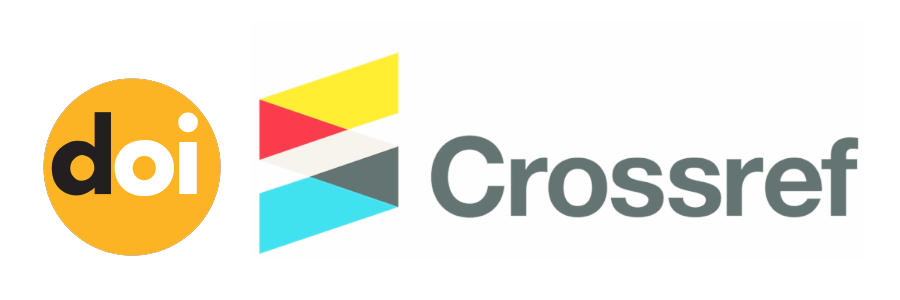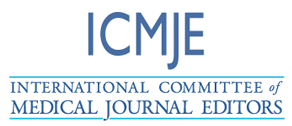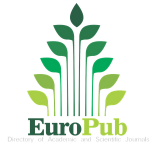Anxiety During the Covid-19 Pandemic in Indonesian Society
Keywords:
COVID-19, Anxiety, Knowledge, AttitudeAbstract
Background: New cases of COVID-19 are currently experiencing an increase and are becoming a major public health problem in Indonesia, causing it in society. Public knowledge and attitudes affect the level of action required to prevent the spread of COVID-19 by the government.
Objectives: This research aims to find out the influence of knowledge and attitudes to anxiety during the COVID-19 period.
Methods: Quantitative studies with cross sectional design, sampling techniques using snowball sampling. The questionnaire has four sections: socio-demographic, knowledge, attitude, and anxiety during the COVID-19 pandemic. Online questionnaires are developed using google forms. Questionnaire links are sent via email, WhatsApp, Facebook.
Results: Results showed that knowledge related to anxiety levels were those who knew how to spread (0.008), transmission (0.020), risk group (0.025), prevention (0.018) and treatment (0.027). Those who agreed to follow the news about COVID-19 (0.007), follow the government's advice (0.006) and purchase preventive equipment (0.001) showing a sense of anxiety during the COVID-19 period. Conclusion: This study proves anxiety occurs in those who know how to spread COVID-19, know that COVID-19 is more dangerous in the elderly and have chronic diseases, know how to prevent it, and know that there is no cure for COVID-19 today. Often they follow the news about COVID-19, follow government recommendations, and are willing to buy COVID-19 prevention equipment, indicating that they are anxious about the COVID-19 pandemic.
References
I. Setiati S, Azwar MK. COVID-19 and Indonesia. Acta Med Indones. 2020;52(1):84–9.
II. Kim S-W, Su K-P. Using psychoneuroimmunity against COVID-19. Brain Behav Immun. 2020;87:4–5.
III. Ho CSH, Chee CY, Ho RC. Mental health strategies to combat the psychological impact of COVID-19 beyond paranoia and panic. Ann Acad Med Singapore. 2020;49(1):1–3.
IV. Roy D, Tripathy S, Kar SK, Sharma N, Verma SK, Kaushal V. Study of knowledge, attitude, anxiety & perceived mental healthcare need in Indian population during COVID-19 pandemic. Asian J Psychiatr. 2020;51:102083.
V. Brooks SK, Webster RK, Smith LE, Woodland L, Wessely S, Greenberg N, et al. The psychological impact of quarantine and how to reduce it: rapid review of the evidence. Lancet. 2020;395(10227):912–20.
VI. Sutriyawan A. Metodologi Penelitian Kedokteran dan Kesehatan: Dilengkapi Tuntunan Membuat Proposal Penelitian. Bandung: PT Refika Aditama; 2021.
VII. Zhong B-L, Luo W, Li H-M, Zhang Q-Q, Liu X-G, Li W-T, et al. Knowledge, attitudes, and practices towards COVID-19 among Chinese residents during the rapid rise period of the COVID-19 outbreak: a quick online cross-sectional survey. Int J Biol Sci. 2020;16(10):1745–52.
VIII. Sutriyawan A, Fitriyani S, Kurniawati RD. Relationship of Knowledge with the Motivation of Health Officers in COVID-19 Prevention at Humana Prima Mother and Children’s Hospital. Int J Converg Healthc [Internet]. 2021 [cited 2021 May 28];1(1):1–5. Available from:
https://www.ijcih.com/index.php/ijcih/article/view/3
IX. Naser AY, Dahmash EZ, Alwafi H, Alsairafi ZK, Al Rajeh AM, Alhartani YJ, et al. Knowledge and practices towards COVID-19 during its outbreak: a multinational cross-sectional study. medRxiv. 2020;1–17.
X. Lin Y, Huang L, Nie S, Liu Z, Yu H, Yan W, et al. Knowledge, attitudes and practices (KAP) related to the pandemic (H1N1) 2009 among Chinese general population: a telephone survey. BMC Infect Dis. 2011;11(1):128–36.
XI. Sutriyawan A, Akbar H, Fibrianti IP, Somantri UW, Sari LY. Descriptive Online Survey: Knowledge, Attitudes, and Anxiety During the Period of Pandemic COVID-19 in Indonesia. Med Leg Updat. 2021;21(1):42–8.
XII. Pappa S, Ntella V, Giannakas T, Giannakoulis VG, Papoutsi E, Katsaounou P. Prevalence of depression, anxiety, and insomnia among healthcare workers during the COVID-19 pandemic: A systematic review and meta-analysis. Brain Behav Immun. 2020;88:901–7.
XIII. Dkhar SA, Quansar R, Saleem SM, Khan SMS. Knowledge, attitude, and practices related to COVID-19 pandemic among social media users in J&K, India. Indian J Public Health. 2020;64(6):205–10.
XIV. Huynh G, Nguyen TNH, Vo KN, Pham LA. Knowledge and attitude toward COVID-19 among healthcare workers at District 2 Hospital, Ho Chi Minh City. Asian Pac J Trop Med. 2020;13(6):260–5.
XV. Wilder-Smith A, Freedman DO. Isolation, quarantine, social distancing and community containment: pivotal role for old-style public health measures in the novel coronavirus (2019-nCoV) outbreak. J Travel Med. 2020;27(2):1–4.
XVI. Ahmad AR, Murad HR. The impact of social media on panic during the COVID-19 pandemic in Iraqi Kurdistan: online questionnaire study. J Med Internet Res. 2020;22(5):5–22.











